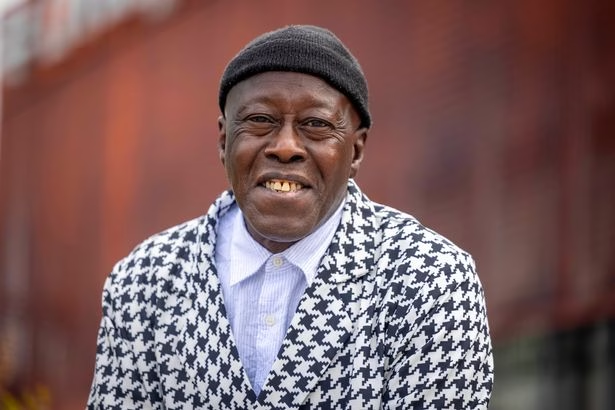By NAN News Editor
News Americas, LONDON, UK, Fri. Aug. 8, 2025: George Lee, a Jamaican-born British resident exiled for nearly three decades due to Home Office failings, has returned to the UK – closing one of the longest and most harrowing chapters of the Windrush scandal but underscoring the systemic flaws that campaigners say still plague the immigration system.

Lee, 72, according to The Voice UK, touched down at Birmingham Airport last month, where Bishop Dr. Desmond Jaddoo MBE, Director of the Windrush National Organisation, greeted him with the words: “Welcome home.” Lee’s understated but emotional response: “I’m back.”
Lee arrived in Britain in 1961 at age eight, joining his parents as part of the first generation of Caribbean migrants to rebuild postwar Britain. He grew up in London, working, marrying, and raising a family – until a short-term teaching contract in Poland in 1997 turned into a 27-year exile when the British Embassy in Warsaw refused him re-entry.
Despite nearly four decades of lawful residence, Lee was told he had “no entitlement” to return – a decision that left him stateless, living in deep poverty, and effectively erased from the country he called home. “In Poland, I was a citizen of nowhere,” Lee said. “I want my rights back. I want my dignity back.”
His return comes six years after the Windrush scandal erupted in 2018, revealing how hundreds of Caribbean-born residents were wrongly detained, denied rights, or deported. While the UK government pledged reforms and compensation, critics say Lee’s case shows how policy gaps – and outsourcing consular services to local staff – still fail the most vulnerable.
“This is not just a historic injustice,” Bishop Jaddoo said. “It’s a live one. George’s case is proof that the Home Office and Foreign Office are still passing responsibility between them, leaving victims stranded overseas.”
Lee’s story adds a “new dimension” to the Windrush scandal, Jaddoo said, spotlighting those exiled to third countries—not deported to their birth nations. Lee, for example, spent years facing eviction, living without electricity, and working odd jobs for survival in Poland.
Although the Nationality and Borders Act of 2022 gave the Home Secretary powers to waive residency requirements for people excluded “through no fault of their own,” Lee was instead told to secure a Jamaican passport and apply for a visa—despite his eligibility for the Windrush Scheme.
The Home Office, in a statement to The Voice UK, declined to discuss individual cases but reiterated its commitment to “ensuring victims of the Windrush scandal are heard” and to “speeding up justice” through the appointment of the first Windrush Commissioner, Reverend Clive Foster.
Campaigners argue that Lee’s return must be more than symbolic. “We can’t just bring people home quietly and hope the scandal is forgotten,” Jaddoo said. “There must be systemic change.”
For Lee, stepping back onto British soil was both a personal and political act. “I have a right to be here,” he said. “I was eight when I came to Britain. I helped build this country. I’m not asking for a favor – I’m asking for my life back.”




